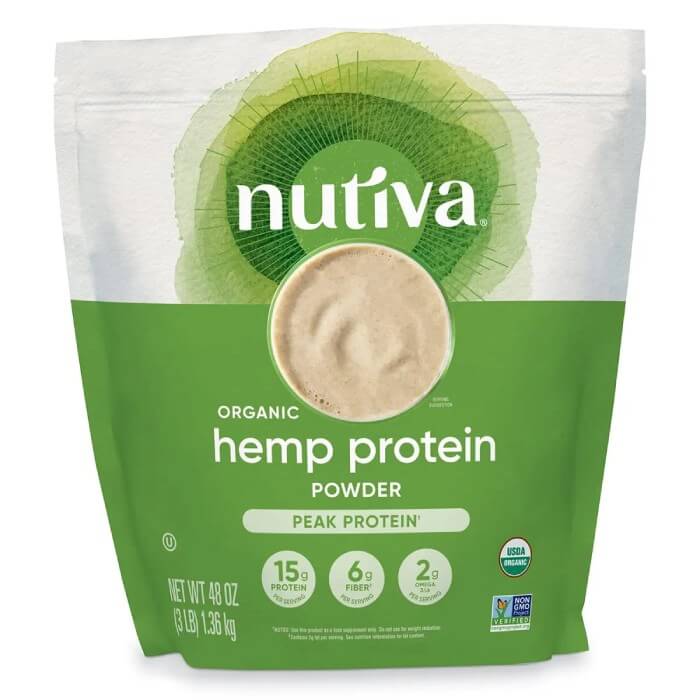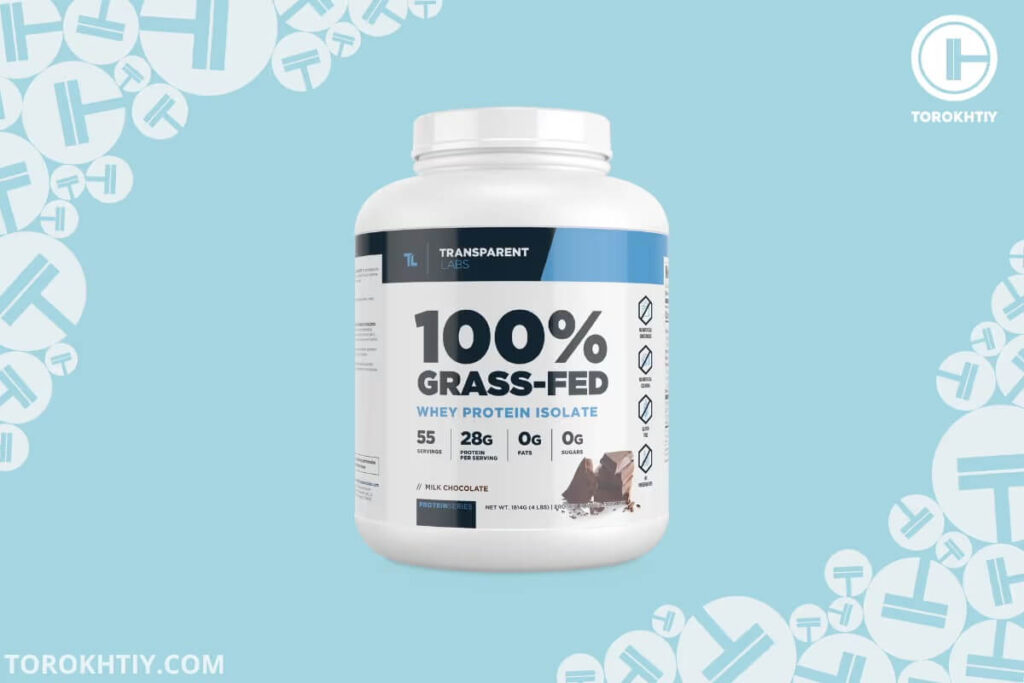Hemp vs Whey Protein: Key Differences and What to Choose
Which is better for you: hemp vs whey protein? Among the variety of protein supplements, it can be difficult to decide what is right for a particular person. In this article, we’ll take a look at how these protein supplements differ and who they’re best for.
Whether you choose hemp or whey protein, they both can be beneficial, although they differ significantly in terms of macro- and micronutrients. Hemp protein contains omega-3 acids, fiber, iron and zero to very low sodium, while whey protein contains more higher-quality protein and calcium per serving.
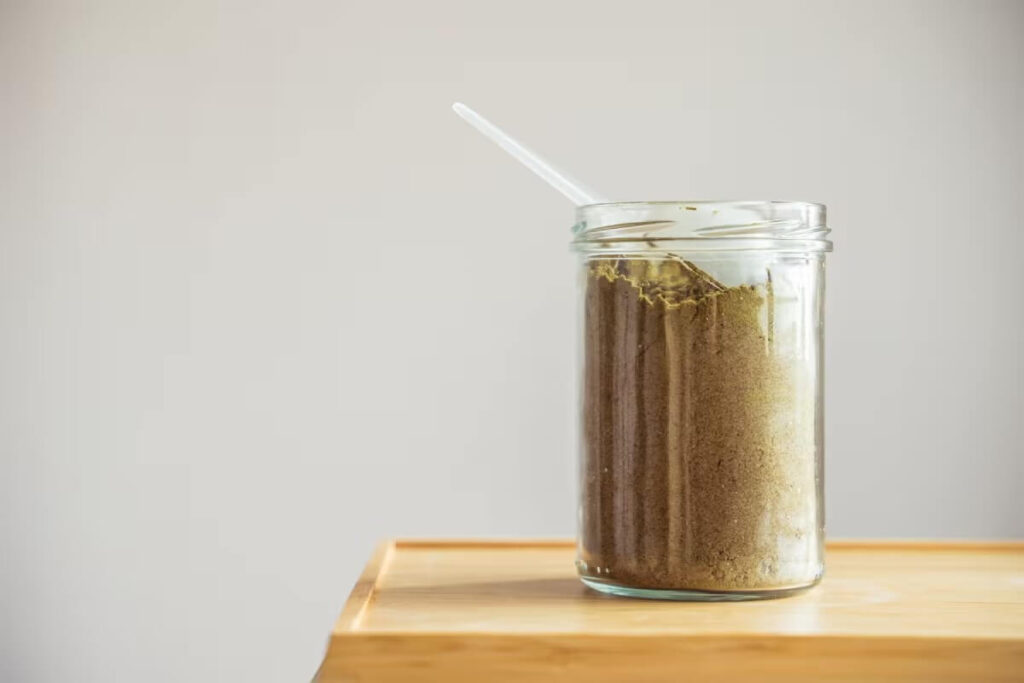
What’s Hemp Protein?
It is a protein of plant origin, which is obtained by extracting oil from hemp seeds. Seed is then used as a raw material for the production of protein powder. Although hemp protein is obtained from the same plant of which Marijuana originates from, it does not contain components that cause intoxication.
Hemp protein has relatively good digestibility and is a good source of the amino acids methionine and arginine.
And while the Academy of Nutrition and Dietetics emphasizes that the terms “complete” and “incomplete” protein are inaccurate, hemp protein has a worse total amino acid profile than whey protein, because it lacks lysine and tryptophan, and also relatively low in leucine.

What’s Whey Protein?
Whey protein is a byproduct of cheese making. In fact, it is just whey – a liquid part of milk, which has gone through processes of purification from carbohydrates, fats and other components, and then dried to a powder form of high-quality, concentrated protein.
Whey protein contains a whole group of proteins: β-lactoglobulin, α-lactalbumin, immunoglobulins, bovine serum albumin, lactoferrin, and lactoperoxidase.
Whey is one of the two types of proteins found in milk. Another fraction of milk protein is casein. Unlike casein, whey is more easily and quickly digested. Whey protein has antioxidant and even antimicrobial properties. It is deservedly one of the best-selling supplements in the world of fitness and sports.
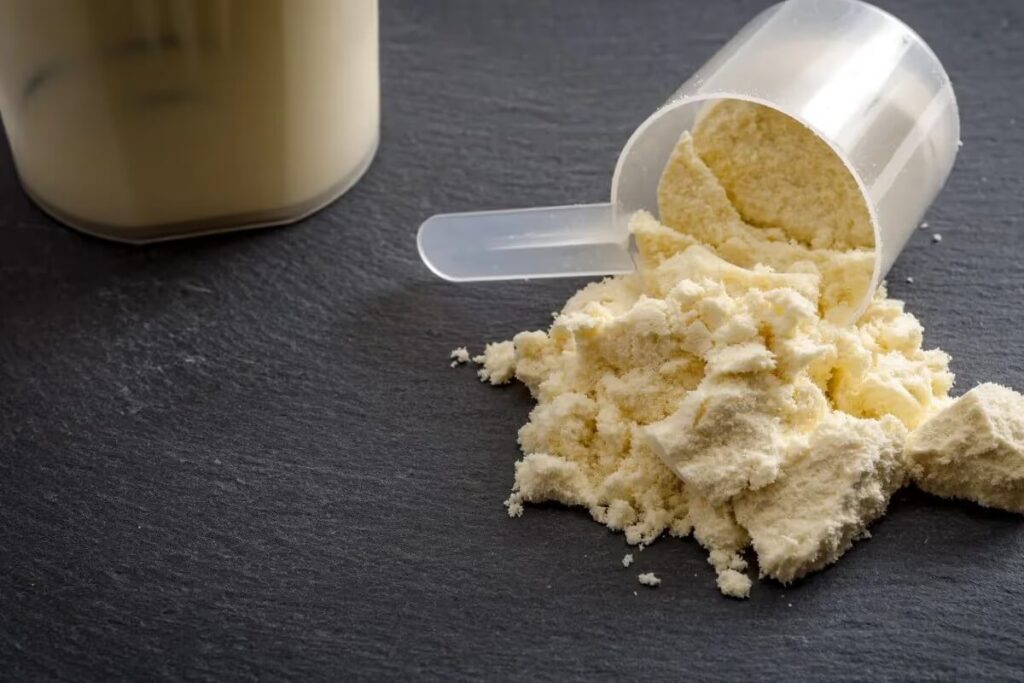
Hemp vs Whey Protein
In order to understand the benefits of each of these protein types, it is necessary to take a closer look at the key differences, especially the amount of protein, as well as the additional composition of macro- and micronutrients, and of course, the price per serving.
1. Processing
Hemp protein production typically involves 3 key steps:
- Defatting of the hemp seeds using cold-pressing and solvent extraction, after which we get hemp seed oil and hemp seed meal.
- Enzymatic and liquid extraction. During this process, non-protein components, including oligosaccharides, starch and pigments, are removed from hemp seed.
- Precipitation. To obtain hemp protein with the highest percentage of protein, the method of isoelectric precipitation is used.
As for whey protein, it is obtained by pasteurizing milk, separating whey from casein using the coagulation method, and further filtering whey from carbohydrates and fats using various techniques. Then after spray-drying, we get a concentrated source of protein with a very high BCAA content.

2. Average Protein, Fats and Carbs Content
Although both types of supplement are sources of protein, the amount of this macronutrient per serving varies significantly. In this component, whey protein has a great advantage.
On the other hand, hemp protein has a higher amount of fats and carbohydrates, which can be both an advantage (for those who want to get more than just protein from a protein supplement) and a disadvantage for those who want to enrich their diet with a portion of protein in a convenient form, while minimizing the intake of carbohydrates and fats.
Look at a comparison table on the macronutrients breakdown for whey vs hemp protein.
| Protein Type | Serving size | Protein per serving | Fats per serving | Carbs per serving | Calories per serving |
|---|---|---|---|---|---|
| Whey | 30-35 g | 24-25 g | 0-3 g | 0-4 g | 120-130 kcal |
| Hemp | 30-32 g | 14-20 g | 3-6 g | 2-10 g | 120-140 kcal |
As for protein quality, whey protein has a significant advantage, because it contains all 9 essential amino acids in an optimal ratio, including a high amount of BCAA. Also, whey protein has better digestibility than hemp protein.
On the other hand, hemp protein is a source of omega-3 fatty acids, whereas even grass-fed whey protein often contains only 0-1 gram of fat per serving, so cannot be considered a source of significant amounts of omega-3 fats.
3. Micronutrients and Fiber Content
Another key difference between hemp and whey protein is the composition of micronutrients. One serving of whey protein contains 100-150 mg of calcium, but the amount of sodium is on average 120-250 mg, and sometimes even 300 mg. As for iron, its amount is usually no more than 1 mg, but very often – 0 grams per serving.
Although hemp protein contains 2-3 times less calcium than whey protein, the amount of iron in one serving is incomparably higher and reaches 3-7 mg. Also, it usually contains 0 mg of sodium per serving, sometimes there are supplements with a small amount of sodium, such as 15 mg.
Another component in which hemp protein has an advantage is the amount of fiber, which is 3-8 grams per serving. Whereas most whey proteins contain zero or very little fiber.
4. Price Range
Whey proteins on average cost from $1.1 to $1.75 per serving, sometimes $2 or more. Whey protein concentrate is less expensive than isolate because the latter goes through additional filtration steps and usually contains less lactose and fat, as well as a better protein-to-weight ratio.
Hemp protein is usually more affordable, as one serving can cost as little as $1. The cost of a portion depends on the specific brand and packaging you choose.
Hemp vs Whey Protein: Summary
Pros & Cons of Whey Protein
Positives:
Could be better:
Pros & Cons of Hemp Protein
Positives:
Could be better:
When to Use Each?
If you need the most concentrated source of protein of the highest quality – without significant amounts of carbohydrates and fats – whey protein is the best for this task. This is an excellent source of protein for both pre-workout and post-workout shake.
However, this supplement is not suitable for vegans and may cause gastrointestinal problems in people who have problems digesting lactose and / or milk proteins.
On the other hand, if your diet and macronutrient distribution allows you to fit in an extra serving of fat and carbohydrates along with a serving of protein, then hemp protein may be right for you. It is also better suited for those who want to get additional bonuses in the form of fiber, iron and omega-3 acids.
Hemp protein is a good option for vegans as well as omnivores looking to improve the nutrient profile of their protein shake or meal. After all, you can simultaneously use these 2 types of protein in the one blend.

How to Pick Between Hemp vs Whey Protein?
In order to choose the best protein for your diet and goals, there are several factors to consider.
1. Diet Type
As already mentioned, whey protein is not suitable for vegans, but it is perfectly suitable for omnivores and lactovegetarians, who consume dairy.
On the other hand, hemp protein is a great option for increasing protein on both an omnivorous and a vegan diet. Supplemental hemp protein can be an especially good source of protein for vegan athletes, who may have difficulty getting the required amount of this macronutrient from whole foods.
2. Protein Source
Whey protein has a significant advantage in this component, because it contains all 9 essential amino acids and is especially rich in BCAA and leucine.
Like any plant-based protein, hemp protein has a poorer composition of essential amino acids and much less BCAA, including leucine. It also has lower digestibility. Although the difference in muscle hypertrophy may not be significantly different between animal and plant proteins (on a gram-for-gram basis), plant proteins still have lower anabolic potential.
3. Serving Size
In general, the more grams of protein per serving in a protein supplement, the better. In this component, the advantage is also on the side of whey protein. For the same portion of powder in grams (30-35 g), whey and hemp proteins contain 24-25 g and 14-20 g of protein, respectively.
4. Approx. Price per Serving
On average whey protein costs $1.1 to $1.75 per serving (whey protein isolate costs closer to upper range, while whey concentrate – closer to lower range). Hemp protein is much more affordable, as one serving can cost as little as $1.
5. Protein-by-Weight Ratio
As you saw from the table above, the caloric content of a serving of both protein supplements can even be the same, but a significant part of the calories of hemp protein belongs to carbohydrates and fats.
Due to this, the protein-by-weight ratio in hemp protein is around 45-65%. As for whey protein, the protein-by-weight ratio can range from 75% to 90%, and even higher for whey protein isolates.
6. Label Transparency
In this component, as a whole group of supplements whey or hemp protein do not differ, because manufacturers usually indicate information on the composition of key and additional ingredients.
However, an additional factor when choosing the best protein is the allergens and food additives that the supplement may contain. If you have an allergy, intolerance or sensitivity to any ingredient, this protein will not suit you.
The icing on the cake is the presence of third-party certification. If a product is tested for banned substances and levels of heavy metals or other contaminants, potential health risks are minimized. This is a very important added bonus for any product.
7. Value for Money
Generally, hemp protein has a lower price. Given the substantial portion of protein and the overall nutrient profile with plenty of fiber and iron, the price is more than justified.
On the other hand, whey protein costs more, but has more protein per serving and a better amino acid profile with lots of BCAAs and leucine. This is worth considering.
Hemp Protein We Recommend
Nutiva Organic Hemp Seed Protein Powder is a great representative of hemp protein with an excellent nutrient profile. Only 100 calories per serving, which contains a whole set of valuable nutrients:
- 15 g of protein,
- 2 g of omega-3 fatty acids,
- 6 g of dietary fiber,
- 6 mg of iron and 4 mg of zinc,
- A whooping 246 mg of magnesium
- 419 mg of potassium.
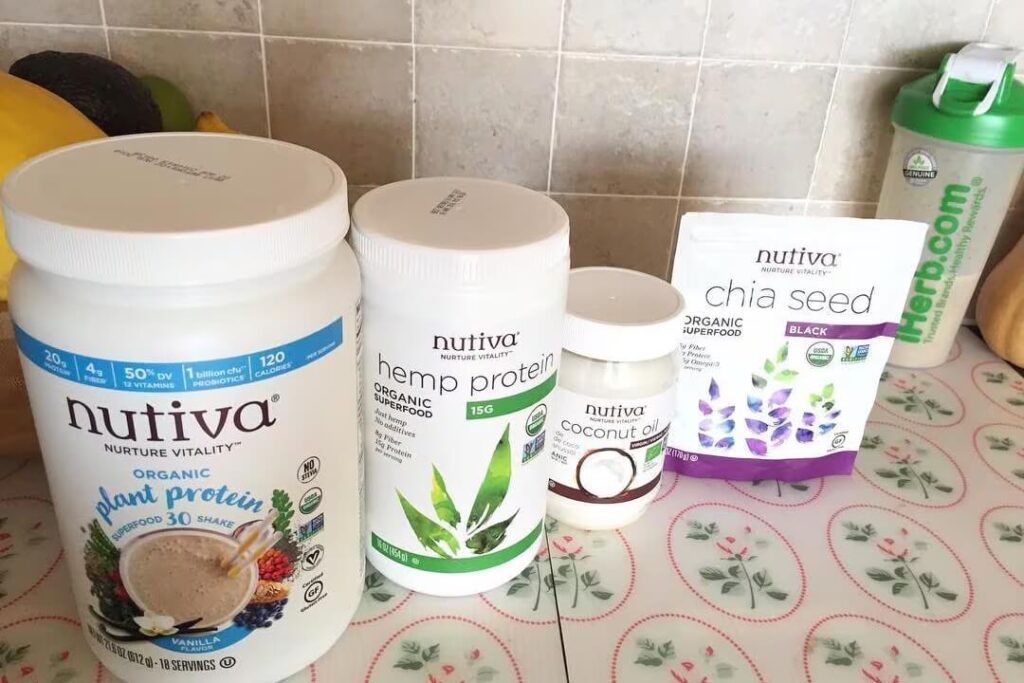
Check the amount of sodium as this protein does not contain a single milligram. This is one of the best hemp proteins on the market which will help add protein to a vegan diet!
Isolate I Recommend
I recommend Transparent Labs Grass-Fed Whey Protein Isolate and there are many reasons for this: it contains only 100% protein isolate (not a mix of concentrate and isolate), a whooping 28 grams of protein per serving and zero grams of fat.
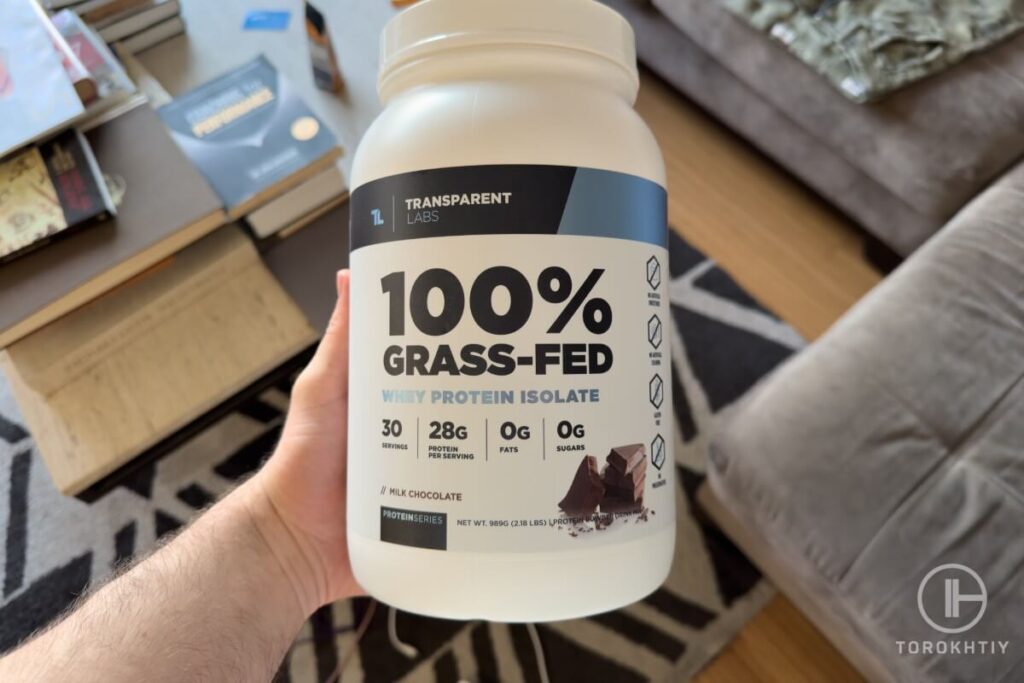
This product has versatile macro breakdown and this is why it’s suitable for any goal. Another additional bonus – very high score on Labdoor (which means that this protein is third party tested).
FAQ
Should I Take Hemp or Whey Protein?
It all depends on the diet type (vegan or omnivorous), personal preferences and gastrointestinal tolerability. If you’re a vegan, choose hemp protein, if you’re an omnivore or a lacto-vegetarian, you can choose either! If you’re an omnivore with lactose or milk protein intolerance, you can try hemp protein.
Is Hemp Protein the Same as Whey Protein?
Hemp and whey proteins are not the same. Hemp protein contains less protein, BCAAs and leucine per serving, while whey protein is the highest quality milk-based protein. If you want more protein per serving and more anabolic potential, choose whey.
Conclusion
In the battle of whey protein vs hemp protein each has its own advantages and disadvantages. Hemp protein has a good overall nutrient profile, while whey protein has a better amino acid profile and better muscle building potential. When choosing a protein, you should be guided by your protein needs, diet type, gastrointestinal tolerability and individual preferences.
Have you tried hemp protein? Share your impressions in the comments!
Also read:
- Oats In Protein Shake
- Mixing Coffee With Protein Powder
- How To Make A Protein Shake Thicker
- Calories in a Protein Shake With Milk
- How Many Scoops of Protein Powder After Workout
- Best Whey Protein for Beginners
- Best Protein Powder With Caffeine
- Best Paleo Protein Powder
- Best Chocolate Vegan Protein Powder
References:
- Acute effects of hemp protein consumption on glycemic and satiety control: results of two randomized crossover trials // Tspace: https://tspace.library.utoronto.ca/bitstream/1807/106932/1/apnm-2020-0907.pdf
- Whey Protein // Sciencedirect: https://www.sciencedirect.com/topics/pharmacology-toxicology-and-pharmaceutical-science/whey-protein
- The Role of the Anabolic Properties of Plant- versus Animal-Based Protein Sources in Supporting Muscle Mass Maintenance: A Critical Review // Ncbi: https://www.ncbi.nlm.nih.gov/pmc/articles/PMC6723444/
- The 10 Sources of Protein Every Man Needs // Menshealth: https://www.menshealth.com/uk/nutrition/a746325/the-worlds-best-protein-sources-313853/
- What to know about hemp protein// Medicalnewstoday: https://www.medicalnewstoday.com/articles/hemp-protein
Why Trust Us?
With over 20 years in Olympic Weightlifting, our team does its best to provide the audience with ultimate support and meet the needs and requirements of advanced athletes and professional lifters, as well as people who strive to open new opportunities and develop their physical capabilities with us.
By trusting the recommendations of our certified experts in coaching, nutrition, dietology, and sports training programming, as well as scientific consultants, and physiotherapists, we provide you with thorough, well-considered, and scientifically proven content. All the information given in the articles concerning workout programming, separate exercises, and athletic performance, in general, is based on verified data. We ensure that you can rely on our professionals’ pieces of advice and recommendations that can be treated as personalized ones which will benefit you and fully meet your needs.
The product testing process is described in more detail here
Author: Oleksandr Maksymenko
Certified Sports Nutritionist,
MSc Sports Dietetics
Specializing in: Weight management, Fitness / Sports nutrition
Oleksandr is a professional fitness nutritionist certified by the Fitness Professional Association (FPA). He follows the principles of evidence-based dietetics and fosters a healthy relationship with food in his clients, ensuring there are no strict prohibitions on their favorite foods or frequent lapses. His primary goal is not only to achieve results for you but also to sustain them over the long term, all while enjoying tasty and delicious food.

